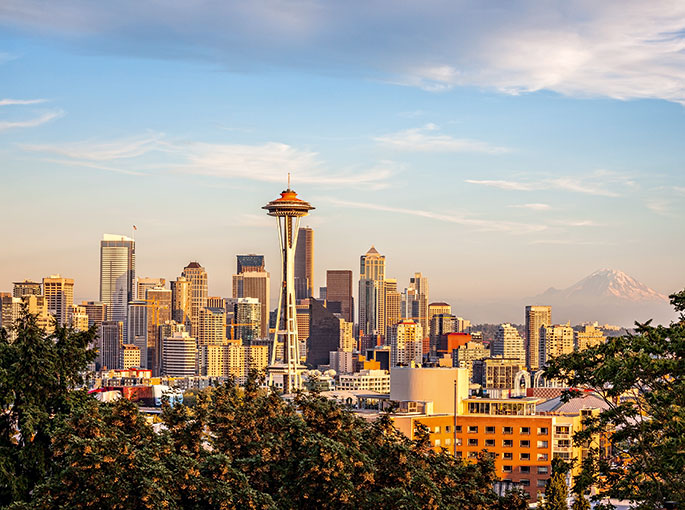
On the road to recovery after the 2008 financial crisis and recession, Washington State offers a variety of incentives for prospective investors. Sitting at the northernmost point of America’s West Coast, the state of over seven million residents finds the Pacific Ocean to its west and Canada to its north.
Getting around
Through utilising its location and transport links, Washington has become a global trading hub. The state has a total of 75 port districts, which, according to the Washington Public Ports Authority, “share a single market: the world”. Complementing this, it also has extensive air travel links, regionally, nationally and internationally. In total, the state boasts 139 regional airports, as well as major global air hubs such as Seattle-Tacoma International Airport, which offers flights across North America, Europe, the Middle East and Asia for over 37 million passengers. The air cargo industry is also important, averaging seven percent growth each year for the past few years. These links facilitate the movement of freight across the country and around the world.
The state levies an income and corporate tax of zero percent
Rail also plays a vital role in the movement of freight. The Washington State Department of Transportation (WSDOT) is assessing the state’s current rail capacity to determine how to accommodate increases in rail use, which is expected to exceed the use of road lorries by 2020 for goods transporation.
The state is also known for its innovation. It was here that Bill Gates turned his Microsoft computer business into a world-changing brand, and where e-commerce was pioneered by Amazon in the state’s largest city, Seattle. Other global brands, such as Starbucks and aeroplane manufacturer Boeing, also originated in this north-western corner of the US. In 2013, Bloomberg named Washington the most innovative state in the country. The State Tech and Science Index also ranked it number two in the entire country for technology concentration and dynamism, and third for its technology and science workforce. It is in this innovative state that much of the industry of the future, such as clean energies, software, advanced manufacturing and aerospace, will be developed.
Intelligent and inclusive
As would be expected, the state has a workforce with the skills and knowledge to match and service this cutting-edge innovation. The city of Seattle is one of the most educated in the country, with over a third of those aged 25 and over holding an undergraduate degree or higher. State-wide, 90 percent of the population has a high school education, compared to the national rate of 75 percent. The state also houses various major universities, community and technical colleges, and a national laboratory. The workforce includes 250,000 high-tech workers, over 50,000 software engineers, and nearly 150,000 aerospace workers.
Washington State is generally seen as a good place to do business. Forbes named it the ninth best state for business in the country, while the Tax Foundation ranked its tax regime as the 11th most competitive in the country. This is no surprise, considering that the state levies an income and corporate tax of zero percent, preferring to raise income through sales taxes.
Foreign investors get an additional perk if they choose Washington State: a road to American citizenship. Through the federal EB-5 programme, investors of $1m or more (or as low as $500,000 in targeted high-unemployment areas) can find a path to citizenship for themselves and their families. The state has 13 federally approved EB-5 centres in operation, with the intention to provide support for foreign investors looking to become Americans.

